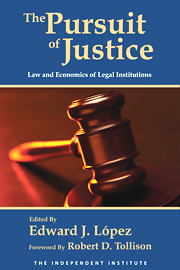Rent control is a classic example of the law of unintended consequences. When Californians scan their ballots for the November 6 election and consider Proposition 10, which would allow local governments to impose and expand rent control laws, they should consider the long-term harms the measure would inflict on housing quantity, quality, and affordability.
Rent control is a textbook example of a price ceiling, in which prices are capped below market rates (i.e., where supply and demand are left free to interact). As those Econ 101 textbooks will show you, many more people will demand housing at these lower prices, but fewer landlords will be willing to provide them at those rates. This leads to a shortage of housing, which only exacerbates the affordability problem. Furthermore, diminished landlord profits and a glut of prospective renters lead to less investment in maintaining properties and offering amenities, thereby reducing the quality of rental housing.
This is well understood among economists. Though they struggle to agree on many issues, an astonishing 93 percent of economists in a 1992 survey of American Economic Association members agreed that “a ceiling on rents reduces the quality and quantity of housing.”
And yet, here we have Prop. 10, which would roll back a 1995 law that curbs rent control. The Costa-Hawkins Rental Housing Act prohibited local governments from implementing rent control for housing built after January 31, 1995. It also exempted condos and single-family homes from rent control laws and allowed landlords to bump prices back up to market rates once a tenant left.
Santa Monica, one of the early adopters of rent control, is champing at the bit to double down on the policy if Prop. 10 passes, and property-owners and developers have taken notice. The number of multifamily rental properties up for sale in the city is at the highest level in 20 years—with about 80 percent more listings than usual—and developers are holding off on land deals, the Wall Street Journal noted in May, as they fear plunging property values if the measure passes.
But if rent control is so harmful an economic policy, why is it still being pursued with such vigor at the ballot box? Because it is all about politics. As journalist Henry Hazlitt asserted in his book, Economics in One Lesson, “[t]enants have more votes than landlords.” In an even more sobering analysis, Hazlitt observes: “The more unrealistic and unjust the rent control is, the harder it is politically to get rid of it.” In effect, you have created a group with strong personal interests that feels forever entitled to such subsidies. The truth of this can be seen in any attempt to reduce—or even slow the growth of—any government welfare program.
The best way to improve housing affordability across the state would be to eliminate the laws and regulations that restrict supply and keep it from meeting demand. But this is much more difficult politically than blaming “greedy” landlords, wealthy tech workers in the Bay Area, and “gentrification.” After all, powerful unions want their prevailing wage laws, environmentalists want to prevent development to keep the environment in a “pure” state (and preserve their hiking and biking trails), neighborhood busybodies want to impose “smart growth” and prevent people from developing their own property to “preserve the character of the neighborhood,” and local governments want to impose high development fees and extract concessions from developers to pad city coffers and get others to pay for their priorities.
It is no wonder, then, that California produces 100,000 fewer housing units than it needs each year, particularly in coastal communities, according to a March 2015 Legislative Analyst’s Report, and why California home prices have gone from 30 percent above the national average in 1970 to 80 percent above average in 1980 to two and a half times the national average in 2015 (not to mention rents that are 50 percent higher).
The slogan should not be “The rent is too damn high!” It should be “The government is too damn big!”
It is dishonest for proponents of Prop. 10 to promise that rent control will deliver affordable rents for all. If they were more forthright, they would say, “We are going to violate people’s property rights and right of contract to force them to offer below-market rents, and only a small portion of you will actually benefit from it, while most of you will have to pay even higher prices for a smaller choice of more poorly maintained housing, or move farther away to areas without rent control.” But that requires longer-term thinking—and doesn’t work so well on a bumper sticker or a protest sign.









